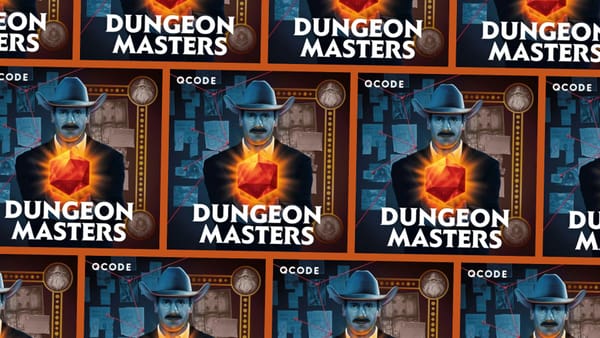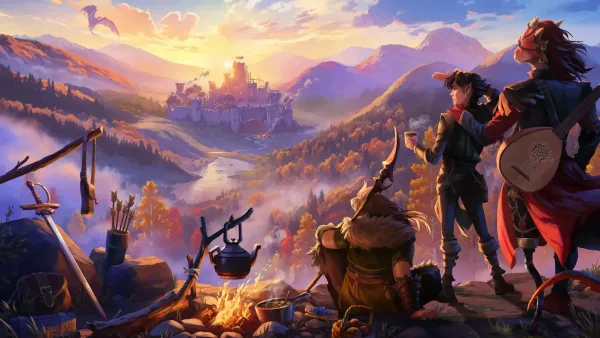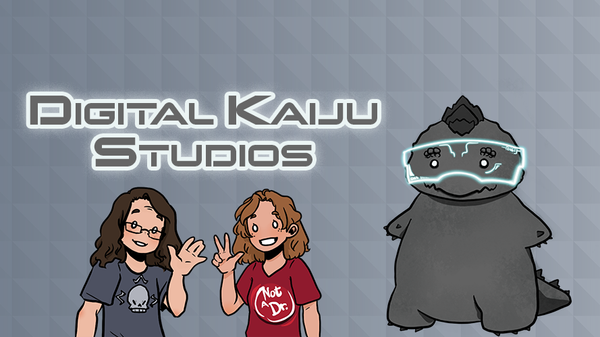New Tabletop Games Journalism
The work that we are building on, the work we admire, and the work we hope to continue to write.

Twenty years ago, four notable video games journalists—Ian "Always Black" Shanahan, Jim Rossignol, Mark Donald, and Kieron Gillen (now notable for entirely different game reasons)—came together and tried to define “New Games Journalism” through a selection of important games writing in The Guardian. They assembled a list of ten must-read articles and blog posts with their justifications, and in doing so helped define what New Games Journalism meant–combining culture, context, and personal observation with critique. While the Guardian article remains, some of the pieces, essays, and articles that were listed have been taken off the searchable internet. It’s a testament to both the power of the internet to connect us and the temporality of the medium.
Regardless, when we were starting this project, Maz Hamilton of Rowan, Rook and Decard asked if there was anything out there like "New Games Journalism" for tabletop games. I said no. Sort of. Not really. One can go through the archives of awards—the ENnies, for example—and find the significant pieces of writing that were important in any given year, but the handful of outlets that are actively publishing tabletop journalism are so few that there’s not really a roundup of the impactful games writing (collected from any source) published on the same level as The Guardian’s "New Games Journalism."
Part archival exercise and part Rascal manifesto, the team has come together to try to identify some of the writing that is most important to them, and is, hopefully, representative of a selection of the best tabletop writing out there. There’s a mix of articles, blogs, academic papers, and interviews, and we hope that by holding ourselves to the standards of storytelling, innovation, critique, and curiosity embodied by these pieces, we can push Rascal as far as possible.
Lin Codega
From Waypoint’s incredible series, At Play in the Carceral State, I have never been able to stop thinking about Elisabeth de Kleer’s two pieces; “Dragons in the Department of Corrections” and “How Inmates Play Tabletop RPGs in Prisons Where Dice Are Contraband.” Together, these articles embody a subversion of the gory tell-alls, showing the out of the box puzzle solving that incarcerated folks are going through every day, not just at their gaming tables, but as they navigate the crucible of the prison system. Two of the first pieces of deep reporting on Dungeons & Dragons that I ever thought meant something.
I mentioned it before, but it’s worth repeating; there are hundreds (maybe even thousands) of individual blogs out there that are a treasure trove of information, knowledge, and deep thinking about games and game culture. One only has to look at the work of Jon Peterson and his blog, Playing at the World to see the depth of knowledge that blogs hold for TTRPG histories and archiving. Peterson has turned this blog into a book, and has written other great work besides, in addition to being the author tapped to write the history of D&D for Wizards of the Coast, publishing later this year.
Blogs are, for many, many people, the backbone of the indie designer movement. Ron Edwards, who self-published Sorcerer, wrote one of these blogs on The Forge in the 90s, titled “Systems Does Matter.” It starts with the line:
I have heard a certain notion about role-playing games repeated for almost 20 years. Here it is: "It doesn't really matter what system is used. A game is only as good as the people who play it, and any system can work given the right GM and players." My point? I flatly, entirely disagree.
I chose this blog, out of all the blogs, because this topic–do systems matter–is a question that still comes up today! In 2024! We have been having this conversation for decades, for as long as there have been systems to argue about. I cannot think of a more clear blog that so obviously articulates an issue that will very likely never, ever stop starting online fights.
A late entry, but one I’m genuinely thrilled to include: Russ Morrisey’s (extremely) recent report into the rise and fall of Evil Genius Games. Morrus has been a pillar in the tabletop news reporting sphere for decades, and ENWorld—a news/forum locale—has long been a haunt of just about everyone in TTRPGs. His dissection of what happened to Evil Genius shows his experience, dedication, and the trust he has engendered throughout his time within the TTRPG sphere. His investigative work is absolutely the energy I want to bring to Rascal, which is absolutely built on the heavy foundation of ENWorld, and owes a lot of its “just fucking do it” DNA to Morrus and his site.
Rowan Zeoli
All art speaks to other art. Nothing exists in a vacuum. As New Tabletop Games Journalism builds itself upward, we must always remember to look towards the artistic, cultural, and historical context of the mediums we seek to understand and critique. Actual play historian, Dr. Emily Friedman’s work has been—and continues to be—deeply influential in my own understanding of the medium as art worthy of being taken seriously. Her piece dissecting the first decade of actual play, as well as her dissection of the idea of “ownership” within TTRPGs (in which she cites the reporting of fellow rascal, Lin Codega) provided a foundation for my work analyzing and critiquing the aesthetics and form of actual play production.
The other rascals said I was allowed one (1) historian in this list, but as Friedman is also quick to reference other work that influenced her own understanding of the medium. I would be remiss to not also mention Evan Torner’s documentation of the original definition of actual play as written game reports in “Actual Play Reports: Forge Theory and the Forums”, which is the first essay in the academic collection Watch Us Roll: Essays on Actual Play and Performance in Tabletop Roleplaying Games.
One of many essays by Possum Creek Games designer, Jay Dragon, “Systems of Relation” examines the connection between the childlike wonder of playing TTRPGs and the improvised sessions of playing pretend as an actual child in one of the most profound understandings of what Play is I’ve ever come across.
House is a children’s game where kids pretend to be members of a nuclear family and do regular family stuff, such as make dinner, argue over the kids, and repress nascent feelings of gender euphoria. I believe it’s accurate to describe House as existing in relationship to a system just as much as Dungeons & Dragons, but while Dungeons & Dragons is built on a system of mechanics, House (and Warrior Cats, and so many other children’s games) is built on a system of relation.
To understand and describe the innate ways in which children play can unlock the structures and systems of our world that unconsciously guide our actions, and in doing so, we can construct new ones. Or, at the very least, we can make some pretty good games.
My final addition to this list is Emma French’s analysis of Dimension 20’s: Unsleeping City. French’s piece, “Fantasy and Play as Means of Claiming Agency in Modern Dystopias” was revelatory for me in viewing actual play as a critique of our social systems and how improvised play can be cathartic in combating those systems for both player and audience.
While Mulligan’s role as worldbuilder uses fantasy as a lens to critique urban life and modernity, his players’ use of D&D archetypes – such as paladin, cleric, and druid – proposes solutions to the dystopian aspects of the world they find themselves confronting.
Using a wealth of scholarly work to supper her analysis, French dissects this deeply unserious artistic medium (which all mediums ultimately are) to create meaning and hope. Though it’s a bit longer than the work we’re going to be doing here at Rascal, there’s a connective tissue between French’s work and my own.
Chase Carter
Synonymous with tabletop RPGs is the persistent and near chronic relitigation of whether Dungeons & Dragons’ orcs (really, all of Western fantasy’s imagining of orcs) are just, you know, actually super racist. My first two entries on this list should be emblazoned on the front page of every forum thread and social media hot take as a double whammy kibosh to both bad-faith resurrections and well-meaning but misguided defenses of the industry’s most bludgeoned horse.
The first, A Most Majestic Fly Whisk’s “being a problem - playable orcs at the limits of humanity,” confidently wraps its dissection of D&D 5E’s orcs in a thumping shell of Black Studies literature in order to point at Wizards of the Coast’s reaction to a broad, mostly online liberalism and proclaim that we’re all “quibbling about whether orcs get to wear the pith helmet”.
[Orcs’] humanity is tied to their ability to engage with racist adventuring fantasy, the monster-killing monster or the human-romanceable monster. Ironically, it's exactly here that Orcishness is most Black — when it reveals the limits of personhood in conventional Eurofantasy.
Zedeck Siew’s “D&D’s Obsession With Taxonomy” trades scholarly citation for the most modern incarnation of the Lyceum—Discord group chats—but shows the same confidence in diagnosing what exactly the hell we mean every time we roll up our sleeves for another toss in the discourse mud pit: “Nerds are obsessed with taxonomy.” What follows is a casual shaming of our near-pornographic desire to put all things—even fantasy people—in tidy boxes.
Nerds don’t mind figuring out complicated fractions of abstract objective absolutes. Because this means you can still ultimately sort reality into absolutes. You can still grasp (in all senses of the word) the world. That thought is safer/more advantageous than: "yeah you just gotta deal with things being a messy soup, people are not lines of code, you gotta pay attention to everything in its own context."
My colleagues and co-owners failed to restrict my putting hours-long podcasts on this list, which is how we arrive at two episodes of the excellent and constantly edifying Game Studies Study Buddies, from the Ranged Touch network. Hosts Cameron Cunzelman and Michael Lutz (with an assist from Austin Walker on one episode) tackled a pair of academic books chronicling two very different but nonetheless critical periods of tabletop RPG’s history.
The first, Jon Peterson’s The Elusive Shift: How Role-Playing Games Forged Their Identity, tracks modern roleplay’s crawl out of the basement of Midwest homes and complication of a new-ish genre of play. By comparison, William J. White’s Tabletop RPG Design in Theory and Practice at the Forge concerns itself with RPGs in the nascent 21st century and what might have been the primordial soup of our current indie design ecosystem.
Cameron and Michael digest academic language without tossing any of the nuance, complexity and–certainly with these two episodes–messy history that transform a manuscript into a document heavy with the weight of history. This industry has the memory of a mayfly, and GSSB’s efforts not only to instruct but to bind the not-too-distant past to our lived reality is a necessary labor.
We’re not above citing ourselves. Separate from the work we admire from other writers, we wanted to point to some of our own writing as touchstones—the kind of pieces we’re really, truly, exceptionally proud of, and the work that we want to carry on across Rascal. So, what are the rascals greatest hits?
Lin Codega
I’ve always been interested in subcultures within art movements, and my essay, “A Game Without Players Can Still Be Played,” was one of the first times I was really challenged to dive into what games, reality, and experience meant within the lyric game space. I wrote a lot–and I mean a lot–about games while working for io9, but one of the things I was delighted to champion was small indie voices via The Gaming Shelf. It made an appreciable impact to the folks who were featured and that, in turn, reminded me that this work—even if it's as simple as lending your platform to someone else—matters.
When I first arrived at io9, I took one look at breaking news and thought to myself, okay but what if I did investigations though. A month later I turned in copy for what would eventually become “NFTs are Here to Ruin Dungeons & Dragons.” I followed it up with some bangers, like “Why Race Is Still A Problem In Dungeons & Dragons.” We’ll set aside all that reporting I did for the OGL, because while I’m proud of the work that I did, there are other pieces I wrote that really resonated with me, the kind of writing I’m proud of, not just the news I broke. A review of Into the Odd, the interview I did with Kieron Gillen and Grant Howitt, the coverage of the D&D themed picket line during the 2023 writer’s strike. These are the kinds of stories I want to write more of. Culturally-minded, critical, and, at times, adoring. But, you know. If you’ve got a story about someone behaving badly, I want to tell it. —Lin
Rowan Zeoli
My work so far in the TTRPG/AP space has focused on how the art we make encounters, confronts, and dismantles oppressive systems through community and radical joy. Radical Queer Joy has always been a part of my work, from my first Actual Play piece on how Dungeons & Drag Queens widened the entrypoint for queer folks into TTRPGs, to “Queer Dungeons & Transgender Dragons” where I spoke directly to pillars of the TTRPG community about how the medium provides a unique opportunity to reimagine ourselves and the world we live in.
I’ve also gone deep into the ways capitalism impacts the art we create with my interview with Brennan Lee Mulligan on Mentopolis’s examination of rejecting an unjust status quo, and my analysis of the Hollywood-ification of AP. However, the work I’m proudest of has been the interviews I’ve done with indie actual play creators like My First Dungeon and the team behind GUDIYA, who advance the medium without the budgets of bigger studios.
Chase Carter
Much like my colleague, Lin, I’ve always sort of chafed under the yoke of breaking news and daily coverage, though it keeps my rent paid and pantry full at the moment. Luckily, I’ve worked on teams that have allowed me to pursue larger stories that often focus on labor practices, unionization and the tabletop industry’s fractious ecology. My feature on the travails and eventual success of the United Paizo Workers earned me the trust of several other budding collectives, and my investigation into board game publisher Pandasaurus’ mistreatment of staff, freelancers and… well, everyone else opened the door for more watchdog-style reporting. Card Kingdom workers’ experience served as an intersection of both specialties.
I’m particularly proud of my ability to synthesize dozens of voices into community reporting like the dive into independent creators’ anxiety amidst the death of Twitter (still waiting on that last act) and a peek into the once-walled garden of 3rd-party D&D creation that was, looking back, unintentionally auspicious given the OGL disaster a mere four months down the line.
If y’all will allow a bit of vulnerability, I’m hesitant to share any pride in my own critical apparatus. It’s a muscle I would desperately love to develop here at Rascal, but my co-bosses currently put it to shame. Still, the narcissistic journalist in me can’t turn down the opportunity to be publicly ridiculed: a review of Wanderhome for Polygon became my first-ever book blurb, while this somewhat more humble piece on playing Wretched & Alone during the COVID-19 pandemic sprang from me fully formed in the space of 45 minutes. Someone mentioned on Twitter that they didn’t realize criticism such as my thoughts on Into the Odd existed on the internet, and I’m still happy Charlie Hall spared so much of the too-clever prose in my review of Apocalypse Keys.
If you want to support your neighborhood bardpunks who are just doing their best and trying to write sharp, incisive, investigative work within the TTRPG ecosystem, consider subscribing. And, honestly, thank you for reading this far.







